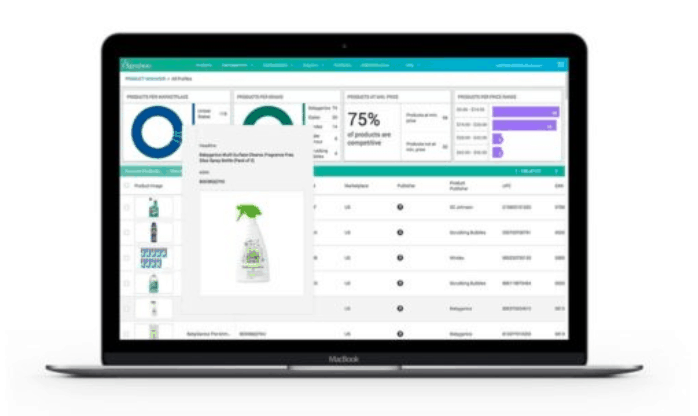Ad management tools are essential for businesses looking to optimize their digital marketing campaigns. These powerful software platforms allow marketers to efficiently create, manage, and track the performance of ads across various channels. By leveraging ad management tools, companies can save time, improve campaign effectiveness, and ultimately drive better results.
In the following sections, we will explore the key features of ad management tools, the benefits they offer, how to choose the right tool for your business, and best practices for maximizing their effectiveness. We are here to help businesses make informed decisions about selecting and utilizing ad management tools, ultimately enabling them to optimize their digital advertising campaigns and achieve their desired outcomes.
What Are Ad Management Tools?
Ad management tools are software solutions designed to simplify and automate the process of running digital advertising campaigns. They help businesses streamline their ad operations, saving time and resources while improving the effectiveness of their marketing efforts.
Key Features of Ad Management Tools
When evaluating ad management tools, look for the following essential features:
Campaign Creation and Management
- Intuitive interface for creating and organizing campaigns
- Support for various ad formats (text, image, video, etc.)
- Bulk ad creation and editing capabilities
- Ad scheduling and dayparting options
Targeting Options
- Demographic targeting (age, gender, location, etc.)
- Interest and behavior-based targeting
- Keyword targeting for search ads
- Retargeting capabilities to reach previous website visitors
Budget Management
- Flexible budget allocation across campaigns and ad groups
- Ability to set daily, monthly, or lifetime budgets
- Automated bid adjustments based on performance
- Pacing controls to ensure even budget distribution
Performance Tracking and Reporting
- Real-time performance data and metrics
- Customizable dashboards and reports
- Integration with web analytics platforms
- Conversion tracking and attribution modeling
Struggling to manage your ads across channels? Learn more about ads management software for your business.
Benefits of Ad Management Tools
Incorporating ad management tools into your digital marketing strategy offers a multitude of advantages that can significantly enhance your advertising efforts and overall business performance. Let’s explore some of the key benefits:
Time Savings and Efficiency
One of the primary advantages of using ad management tools is the time savings and increased efficiency they provide. These tools offer several features that streamline your advertising processes:
- Automate repetitive tasks, such as ad creation and bid adjustments, freeing up valuable time for marketers to focus on strategic planning and analysis
- Manage campaigns across multiple channels from a single, centralized platform, simplifying workflows and reducing the risk of errors
- Enable quick identification and addressing of underperforming campaigns, allowing for timely optimizations and course corrections
These time-saving features empower marketers to work more efficiently, allocate their resources more effectively, and drive better results from their advertising efforts.
Improved Campaign Performance
Ad management tools offer advanced targeting options that empower marketers to reach the most relevant audiences for their products or services. These tools leverage data and insights to help you:
- Identify and target high-value customer segments
- Customize ad messaging and creative for specific audience groups
- Optimize ad delivery based on real-time performance data
- Allocate budget to top-performing campaigns and ad groups
By reaching the right people with the right message at the right time, ad management tools can significantly improve the effectiveness of your advertising efforts, leading to higher click-through rates, conversions, and overall ROI.
Valuable Insights and Reporting
Another key benefit of ad management tools is the wealth of data and insights they provide. These tools offer a comprehensive view of your campaign performance, allowing you to:
- Monitor key metrics and KPIs in real-time
- Identify trends, patterns, and opportunities for improvement
- Gain a deeper understanding of your target audience’s behavior and preferences
- Generate detailed reports for stakeholders and decision-makers
Armed with these valuable insights, you can make data-driven decisions to refine your advertising strategy, optimize your campaigns, and allocate your marketing budget more effectively. Ad management tools provide the transparency and accountability needed to demonstrate the impact of your advertising efforts and justify marketing investments.
Ultimately, the benefits of ad management tools extend beyond just improving the performance of your advertising campaigns. These tools can help you gain a competitive edge, drive business growth, and achieve your overall marketing objectives.
Lost in the sea of paid search management tools? Discover the best paid search management platforms.
How to Choose the Right Ad Management Tool
Selecting the right ad management tool is crucial for the success of your digital advertising campaigns. To ensure you choose a tool that aligns with your business needs and goals, consider the following:
- Assess Your Needs: Evaluate your current advertising operations and identify your challenges in managing your digital media campaigns. Determine the essential features and functionality you require, such as campaign creation, targeting options, budget management, and performance tracking.
- Look for Comprehensive Features: Seek out ad management tools that offer robust feature management capabilities to streamline your advertising operations. A comprehensive tool should provide a wide range of features, including advanced targeting options, A/B testing, and ad creative management.
- Prioritize Scalability: Consider the scalability of the ad management tool. Choose a tool that can handle your campaigns’ increasing volume and complexity as your business grows and your advertising efforts expand without compromising performance or usability.
- Ensure Seamless Integration: Verify that the ad management tool seamlessly integrates with your existing marketing tech stack, such as your website analytics platform, CRM system, and CMS. Smooth integration ensures a holistic view of your marketing efforts and enables data-driven decision-making across your advertising operations.
- Evaluate User Experience: Prioritize user experience and ease of use when evaluating ad management tools. Look for tools with intuitive interfaces, clear navigation, and helpful resources to reduce the learning curve for your team and maximize the value you derive from the platform.
- Consider Support and Resources: Assess the level of support and resources provided by the ad management tool vendor, such as responsive customer support teams, comprehensive documentation, and a thriving user community. Access to expert guidance and peer insights can be invaluable in troubleshooting issues and staying up-to-date with industry best practices.
Careful assessment of your business needs and consideration of these factors will enable you to select an ad management tool that empowers you to optimize your digital media campaigns, streamline your advertising operations, and achieve your marketing goals.
Want to Master Your Google Ads Campaigns? Learn how to choose the right Google Ads management tool.
Best Practices for Using Ad Management Tools
To maximize the effectiveness of ad management software and tools, follow these best practices:
Set Clear Goals and Objectives
- Define specific, measurable, achievable, relevant, and time-bound (SMART) goals
- Align ad campaigns with overall business objectives
Define Target Audiences
- Use audience insights and data to create targeted segments
- Tailor ad messaging and creative to each audience segment
Create Compelling Ad Content
- Craft attention-grabbing headlines and ad copy
- Use high-quality visuals and engaging formats (e.g., video)
- Include clear calls-to-action (CTAs)
Monitor and Optimize Performance
- Regularly review campaign performance metrics
- Identify top-performing ads and campaigns
- Pause or adjust underperforming elements
- Continuously test and refine targeting, ad creative, and landing pages
Implementing these best practices consistently across your ad campaigns will help you get the most out of your ad management tools. Remember, the key to success is to remain agile and data-driven and always be willing to experiment and adapt your strategies based on performance insights.
Skai: Empowering Smarter Marketing Decisions
Skai is a marketing intelligence platform that empowers brands and agencies to make smarter decisions across their entire marketing funnel. We do this by tackling the biggest challenges marketers face today: fragmented data, inefficient workflows, and a lack of actionable insights.
Here’s what makes Skai different:
- Unified Omnichannel Platform: We break down data silos across search, social, retail media, and more, giving you a single view of your marketing performance. This means no more jumping between platforms or struggling to reconcile data.
- Marketing Measurement Expertise: At Skai, we believe everything you do in marketing should be measurable. Our platform provides the tools you need to prove the impact of your campaigns and optimize your budget allocation.
- Future-proofed for Privacy: As data privacy regulations evolve, Skai’s commitment to aggregate data analytics ensures you can continue to measure success without being hampered by limitations on individual identifiers.
- Rich Retail Media Capabilities: Capitalize on the exploding growth of retail media with Skai’s suite of built-in tools designed to help you dominate digital shelves and win in competitive ecommerce.
- AI-powered Optimization: We leverage cutting-edge AI to automate tedious tasks, identify opportunities, and optimize your campaigns in real time.
- Independent Platform Flexibility: Unlike platforms that lock you into their ecosystem, Skai offers unmatched flexibility with an open architecture that connects to any data source.
With Skai, you can finally break free from the limitations of traditional marketing tools and achieve the agility and performance you need to win in today’s data-driven landscape.
Ready to take control of your marketing data and unlock its full potential? Contact us to learn more about how Skai can help and explore our advertising management platform today.
Frequently Asked Questions
What are the key features to look for in an ad management tool?
When evaluating ad management tools, focus on features that align with your business needs and goals, such as campaign creation and management, advanced targeting options, budget management, performance tracking, and reporting. Also, consider the tool’s ease of use, integration capabilities, and customer support.
How can ad management tools help improve the ROI of digital advertising campaigns?
Ad management tools help improve the ROI of digital advertising campaigns by providing advanced targeting options, real-time performance tracking, and optimization capabilities. These features enable marketers to reach the most relevant audiences, allocate budget to top-performing campaigns, and make data-driven decisions to maximize the effectiveness of their ad spend.
Can ad management tools be used for multiple advertising channels?
Yes, many ad management tools support multiple advertising channels, such as search engines, social media platforms, and display networks. All-in-one ad management tools provide a centralized platform to manage campaigns across various channels, making it easier for marketers to maintain a cohesive strategy and track performance holistically.






